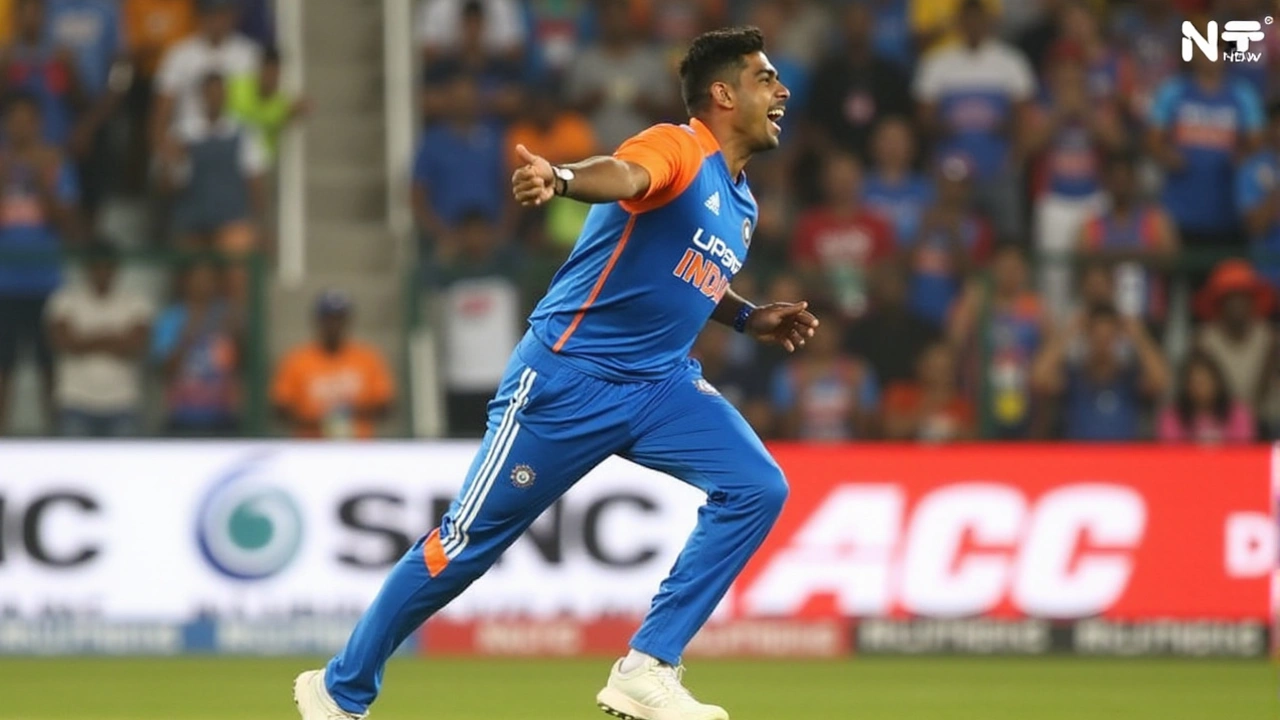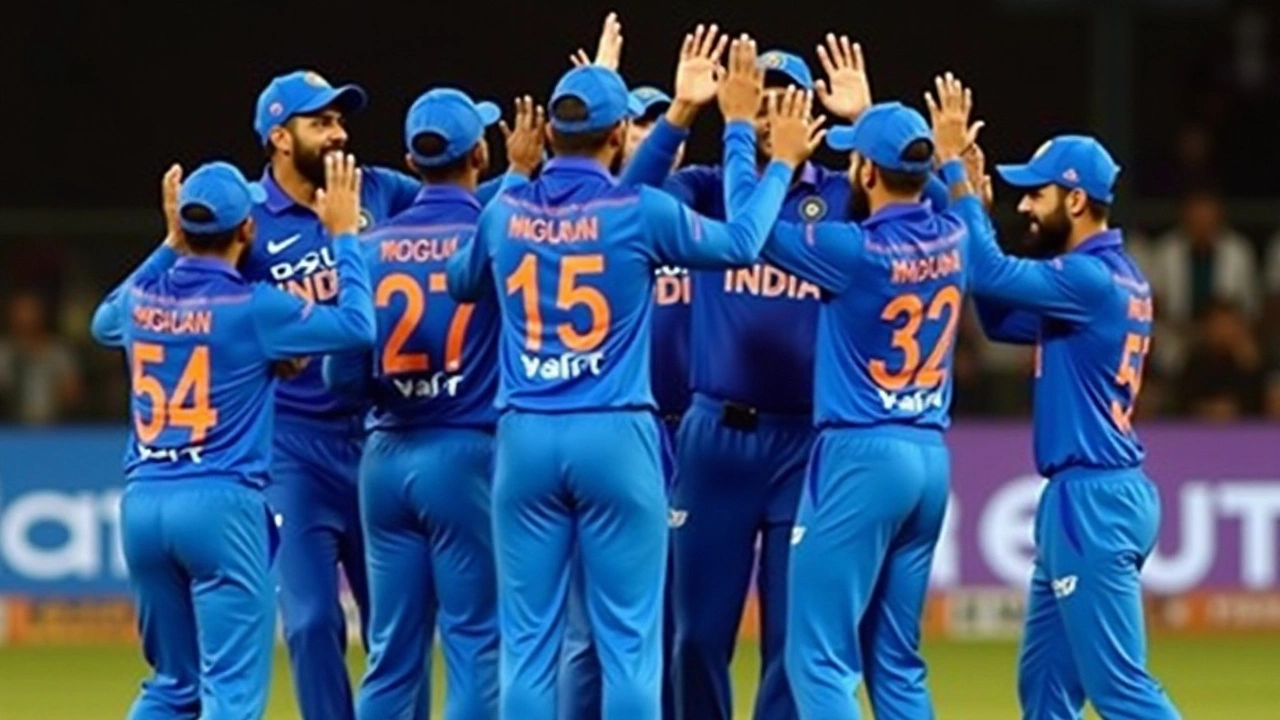Harshit Rana Debuts as Concussion Substitute Amid Controversy in India vs England T20I Series
 Feb, 1 2025
Feb, 1 2025
Unprecedented Debut on the T20I Stage
Cricket, known for its dynamic shifts and surprises, witnessed yet another historic moment when Harshit Rana made his debut as a concussion substitute for Shivam Dube. This unusual debut transpired during the fourth T20 International match against England at the Maharashtra Cricket Association Stadium in Pune. The atmosphere was charged with excitement and anticipation as Rana, a 23-year-old fast bowler, stepped onto the field under extraordinary circumstances. His debut was not only significant for the personal milestone it represented but also contributed immensely to India's gripping 15-run victory, effectively securing a commanding 3-1 lead in the five-match series.
As the match unfolded, it became clear that Harshit Rana's contribution would prove pivotal to the outcome. He bowled with precision and tenacity, claiming three wickets while conceding just 33 runs across his four overs. This performance made a substantial impact, tightening India's grip on the match and tilting the balance in their favor. For a debutant to exhibit such composure and effectiveness under pressure speaks volumes about Rana's capabilities and potential within the international arena.
The Incident: Shivam Dube and Concussion Protocols
Shivam Dube's role in setting up this turn of events cannot be overlooked. During the frenetic final over of India's innings, Dube encountered a fearsome bouncer from Jamie Overton, which struck his helmet. Though he bravely continued to bat, eventually shouldering the responsibility for scoring as many runs as possible, the decision was later made to rule him out under the official concussion protocols. Such injuries are not uncommon in cricket, underscoring the sport's inherent risks and the need for stringent safety regulations.
It was at this juncture that Harshit Rana was appointed as a concussion substitute, a move that did more than raise eyebrows among cricket aficionados and professionals alike. The discourse quickly expanded to involve the nuances of the International Cricket Council's concussion rules, with vital conversations concerning how well they are applied to real-world match situations.

Controversy and Debate: Examining ICC Concussion Rules
The game's aftermath was marked by a chorus of debate regarding the ICC's concussion substitution policy, particularly the stipulation calling for a 'like-for-like' replacement. The crux of the controversy lay in the perceived discrepancy between Shivam Dube's and Harshit Rana's roles and skill sets. Dube, a batting all-rounder with limited involvement in India's bowling attack, was ostensibly replaced by Rana, a dedicated fast bowler.
Former England captain Michael Vaughan articulated what many were thinking when he questioned whether India's decision in this case adhered to the spirit, if not the letter, of the ICC's regulations. These stipulations dictate that a substitute should reflect the likely contribution of the player they are replacing, covering the aspects of gameplay they were involved in.
Reactions and Comments from the Cricketing World
England's captain, Jos Buttler, expressed dissatisfaction with the substitution decision. He pointedly remarked on the difference in expertise between Dube and Rana, suggesting the tactical advantage India gained was unfair. "We don't agree with concussion substitute. It's not a like-for-like replacement," Buttler opined, articulating a sentiment that seemed to resonate with his team and a significant number of cricket supporters and analysts.
The controversy added an extra layer of intrigue to the match's narrative, highlighting the booming debate about the fairness and integrity of ICC's concussion management rules. Despite the hullabaloo, Harshit Rana's inclusion, regardless of the circumstances that led to it, confirmed the potent influence a skilled player can have, even as a substitute, marking his debut as an unforgettable chapter in cricket history.
Addressing the Future of Concussion Substitutions in Cricket
Looking ahead, it is imperative for the ICC and national cricket boards to reflect on this incident and scrutinize their existing protocols. The role of substitutes, especially in cases involving concussions, cannot be underestimated given the potential implications for fair play and competitive balance. Ensuring that the policies are clearly defined and consistently applied will be paramount for maintaining the integrity of cricket, particularly when the eyes of the world are glued to high-stakes matches.
This evolving conversation about concussion substitutes is likely to influence the sport's future. Should India be praised for their strategic acumen or criticized for exploiting a loophole within the rules? Can the sport accommodate both safety-focused regulations and a level playing field? As the dust settles, questions like these will need to be addressed and evaluated, reaffirming the interactive dynamic between cricket's tradition and innovation.